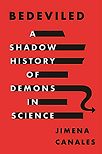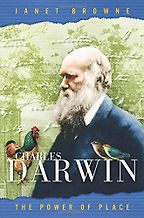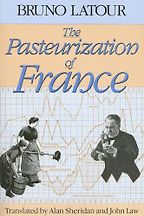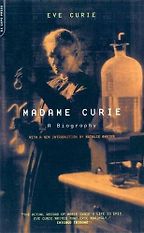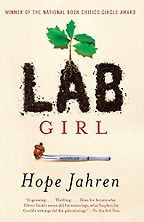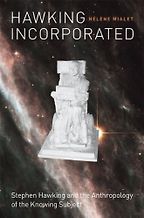Scientists are the topic of the brilliant books you’ve selected. Although science has been afoot since ancient times, the word ‘scientist’ is a relatively recent invention. William Whewell coined it in 1833. What is a scientist and what made scientists?
The etymological lineage of the word “scientist” makes it seem as if that role was a modern British invention—which is not true. If we stick too closely to that term, we risk excluding the many other practitioners who investigated the natural world before that term existed and the many others who worked in non-English speaking contexts. Once the term “scientist” started to be used consistently, it signaled a narrowing of the role of the researcher tied to the professionalization of science (typically white, male, Anglo, university-educated, card-holding careerman). That distinction is part of the history of science, but it should not blind us to the fact that humanity’s search for truth is a much longer and general quest from which we cannot exclude those who do not fit into that category.
Whewell did not pull out his label from thin air—the Latin term scientia was widely used since ancient times. Many other words with different roots refer to knowledge and wisdom and those who seek it, such as investigator, prospector and researcher (from Old French cerchier.) In recent years, the field of history of science has expanded to include many other practitioners who did not go by the term “scientist,” just as it has expanded in focus geographically beyond Western Europe and North America. After all, it is those individuals who have been responsible for adding the most to the stock of valuable knowledge available to us.
In Bedeviled: A Shadow History of Demons in Science I cover a much broader set of researchers to overcome the false dichotomy that is usually drawn between modern and Western traditions and primitive and foreign ones. The scientists in my book thus appear to be not so different from the demonologists of yesteryear, as both were equally concerned with creatures who could break or bend the laws of nature.
Science’s conversation with philosophy was the topic of your prize-winning book, The Physicist & The Philosopher: Einstein, Bergson, and the Debate That Changed Our Understanding of Time. What does that book teach about what it means to be a scientist?
Einstein’s debate with the renowned French philosopher Henri Bergson on April 6, 1922 in Paris, is a key moment where we see a shift in the role attributed to “the scientist” versus “the philosopher.” Einstein is typically seen as having won the debate, so this marks the moment when science took the baton away from philosophy with respect to discussing matters of time and when a particular understanding of time associated with scientific rationality and expertise gained prominence. Time basically became what clocks measured.
“Most of the biographical accounts have given us a deceptive view of the profession”
The more interesting question raised by Bergson – why clocks were invented and why they were used – was shelved. Although the twentieth century ended with a physical understanding of time firmly ensconced, the victory came with consequences. Einstein and Bergson actively pushed contradictory political and cultural projects in a century of escalating violence. Those divisions reflected a split in how time was understood versus how it was experienced. Individuals struggled to survive in a world regulated by objective clock time measurements as they learned to live in a world divided into science and art, the public and personal, the abstract and the concrete. The contradictions once represented by the two men gained independent lives of their own, appearing as timeless as time itself.
In Simply Einstein you offer a succinct introduction to the most familiar icon of modern science, studded with original insights into what enabled Einstein’s genius to effloresce. Please tell us about the book and how the history of scientific biographies informed what you wrote.
Scientists’ biographies can seem like a straightforward and conventional nonfiction genre. They typically answer obligatory questions about a life and include obligatory details, such as birthdate, birthplace, upbringing, family structure, social milieu, educational background, etc. They are typically structured chronologically, starting with parents and sometimes grandparents, and ending with death followed by legacy. Readers and authors typically pay no attention to the implicit assumptions about agency, subjectivity, and causality that underlay this common narrative structure. In Simply Einstein I start from an entirely different platform, questioning all the assumptions about the genre. The book takes the reader away from the typical “Who is Einstein?” to confront readers with a different question: “How did Einstein become Einstein?”
Turning to your first recommendation, the second part of a two-volume biography of another icon of science. This is Harvard historian Janet Browne’s prize-winning Charles Darwin: The Power of Place. Please tell me about.
Disclosures first: Browne is a mentor and friend, so I know a little more about how her personal interests intersected with historiographic preoccupations that drive her narrative. She succeeds in giving us a full picture of the man but, like my own Einstein bio, it bites the genre and expands it.
Get the weekly Five Books newsletter
Browne contends that Darwin’s theories of evolution were nourished by his systematic correspondence with other scientists. Does she succeed in showing that Darwinism was the product of collective thought?
Yes, she does, and she also underscores throughout her book the importance of the infrastructure, ranging from the postal system to his home, wife and children, that subtend these collective networks. Her biography is even more generous than most group biographies in that it changes how we must think about “life and work.” In the first pages, she tells us explicitly that Darwin “not only lived his own life, he lived also in the lives of others.” She is not only thinking about human lives. More radically, she ends the book not with Darwin’s own death, but with that of his dog, Polly, a few days later.
Sciences Po professor Bruno Latour wrote your next recommendation, about the great French scientist Louis Pasteur. Please tell me about The Pasteurization of France.
The book is an ambitious contribution that starts off by comparing accounts of the great scientist with those of Napoleon to try to figure out what is special about how we narrate the lives of scientists compared to those of others, including generals or political figures, but it quickly goes even farther in its historiographic contributions. Microbes enter into the narrative. The book’s “hylozoism,” or its inclusion of non-human agents, seemed heretical at the time it was published. Still, no one can deny that Pasteur was only successful in his scientific work because he managed to make microbes work for him. In the era of COVID-19, where we are all concerned with making viruses behave in our favor with vaccinations, masks and other strategies pioneered by Pasteur, the book is a must read.
Critics are divided about this book.
The Pasteurization of France is one of Bruno’s early books (in my opinion those are the best), which came after Laboratory Life and Science in Action. It marked him as one of the most creative and controversial thinkers in the field of science studies. I know Bruno personally and have also heard mouthfuls about him from his most severe critics. His Pasteur “biography” was amply criticized by historians who admittedly knew much more about that time period. Simon Schaffer, also one of my mentors, wrote a scathing review titled “The Eighteenth Brumaire of Bruno Latour.” Sociologists of science went after him mercilessly as well, often protesting that the book was not sufficiently Marxist or materialistic in its approach. But those faults are also its strength, and its bad press only helped its author sharpen his message.
Moving on, please tell me about Madame Curie: A Biography by her daughter Eve.
Biographies, sometimes starting with autobiographies, are essential for consecration and canonization. For example, readers mostly took Darwin’s own autobiography at face value as testament to his greatness—until a close reading by Janet Browne disclosed how it was evidently not written for his immediate family, although it claimed to be so. Einstein similarly used biography and autobiography very effectively to crown himself as an exceptional thinker. The first Einstein biography to consecrate him in this way was actually pseudonymously written by his son-in-law, predictably portraying him as a lonely and modest (even shabbily dressed) genius. Like Darwin before him, Einstein was so concerned with his self-image that when his ex-wife proposed to write her memoirs of their life together, he threatened to give her a good thrashing if she went through with her plan.
Five Books interviews are expensive to produce. If you're enjoying this interview, please support us by donating a small amount.
Madame Curie also serves a hagiographic function, but the biography is different because the reason for her worship is not confined to her work and mind, or even to her roles as Polish immigrant, wife, or mother. It is movingly written by her daughter, Eve, and the author convinces us to care about her because she is human and fragile: “exceptional not only in her genius, but by her humanity, by her innate refusal of all vulgarity and littleness.”
“Marie Curie is the role model for every girl who states a claim to the life of the mind,” according to her daughter Eve. Can you make the case for that quote?
I hope not—she is such a tragic role model. I do believe that the book does offer a different picture of “the mind” than we are used to in biographies of scientists. It is much more embodied. Eve’s descriptions of her own fleshy-and-boney scientists-parents comes with a strange upside for readers. There is more gore in her book than I have ever read in scientists’ biographies. Of her father’s death, she writes:
beneath the feet of the powerful horses. Pedestrians cried “Stop! Stop!” The driver pulled on the reins, but in vain: the team of horses kept on. Pierre was down, but alive and unhurt. He did not cry out and hardly moved. His body passed between the feet of the horses without even being touched, and then between the two front wheels of the wagon. A miracle was possible. But the enormous mass, dragged on by its weight of six tons, continued for several yards more. The left back wheel encountered a feeble obstacle which it crushed in passing: a forehead, a human head. The cranium was shattered and a red, viscous matter trickled in all directions in the mud: the brain of Pierre Curie.
The retelling of her mom’s difficult death is no less chilling. It is no surprise to me that one of the first biographies of a scientist that emphasized general human qualities in its subject was of a female scientist, written by her female offspring.
Scientists often need to detour from research to pursue the funding that fuels their work. An introduction to this biography brings forth how Madame Curie’s quest for funding caused her to craft an appealing public persona. Can you please tell us about that aspect of the book and how the need for money shapes the lives of scientists generally?
Yes, there is a joke among historians of science that funding needs to be added to the so-called scientific method. Getting money (and the relation of science to capitalism more generally) is one of many aspects of science, along with the self-fashioning practitioners engage in, that is often obscured in accounts about them.
A bestselling, award-winning scientific memoir by botanist Hope Jahren is next. Please tell me about Lab Girl.
Scientific biographies most often focus on Great Famous Men—but most scientists reach neither fame nor glory. Lab Girl reminds us how the profession of the scientist has changed, how hard and unglamourous it is. In some senses, it is a book that annihilates with a single, first-person-punch the entire genre of biographies of luminaries such as Newton, Galileo and Einstein meant to glorify. Being a scientist is really very different for most people. Most of the biographical accounts have given us a deceptive view of the profession.
Lab Girl recalls for me the musing of the famous philosopher of science Donald Trump. He frequently posited that he had “a natural instinct” and “natural ability” for science, which he related to the fact that his uncle was a scientist. Jahren, the daughter of a scientist who grew up playing in her father’s lab, portrays herself as called to botany. Her introspection invites the question: Did Jahren inherit a scientific gene from her father or grow up so steeped in the scientific method that she was destined to become a scientist? Is it nature or nurture that makes scientists?
Most biographies are rife with conjectures (usually implicit) about the respective influence of upbringing, innate psychology, and the broader environment. Yet we also now know that it is impossible to parse out these elements in fixed and abstract terms across all time and history. Nature and nurture have been taken to polarizing extremes that are commonly used to ascribe blame or take credit. For this reason, I love biographies that confront “life and work” in a way that problematizes those labels. They can not only help us realize that nature requires nurture and nurture nature, but to move beyond those tired questions to think about the emergence of the categories we use to organize knowledge more generally, and to choose ones that do not drive us into such impasses.
Get the weekly Five Books newsletter
To answer your second question: Can being a scientist be inherited? I am sure you mean it as a joke or provocation, but the history of science is rife with scientific dynasties which trace their lineage from great-great grandparents. This takes us back to your opening question of the interview: being a scientist today requires very specific credentials. anti-Trump, science-matters movements rightfully insist that scientific expertise belongs to those who hold those credentials. Many plots in scientific biographies hinge around the confrontation between ignorance and reason—think of the Galileo fable—but now is also a time to remember how dangerous those moments are when the learned look down on the lay.
Hawking Incorporated by professor of science and technology Hélène Mialet is last on your list.
Hawking Incorporated is essential reading for anyone interested in “distributed cognition,” the idea that thinking mostly takes place outside of our minds—but it is also a great story of how a severely mobility-challenged being was able to escape from his constraints to do something which contemporary science currently prohibits: to remain active in the universe even after death.
All the books you’ve chosen question the singularity of scientists’ minds and the singularity of individual achievements generally. What does science show about the hypothesis that, to a degree, all minds are hive minds?
A typical trope in scientific biographies, starting with those of Newton, stresses how geniuses often work in isolation, lost in thoughts that are not concerned with the mundane. This characteristic tells us a lot about how the scientific persona has been constructed throughout history, but it gives us a distorted view of what scientific work actually entails.
March 12, 2021. Updated: February 12, 2023
Five Books aims to keep its book recommendations and interviews up to date. If you are the interviewee and would like to update your choice of books (or even just what you say about them) please email us at [email protected]

